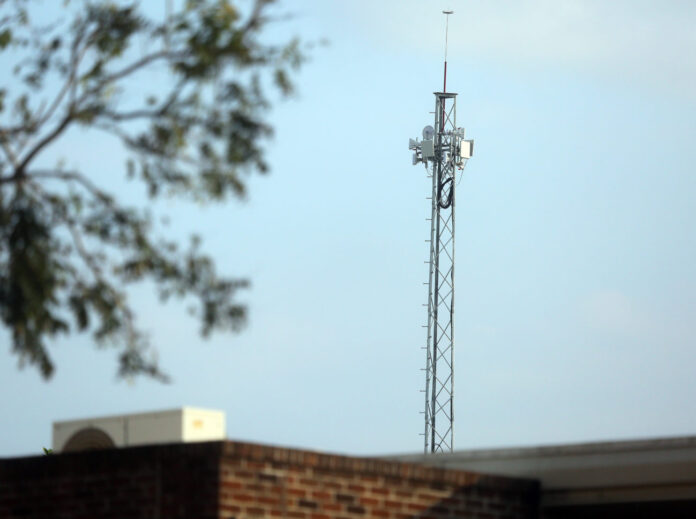
DONNA — Delays in Donna ISD’s Wi-Fi tower project that have put the project weeks behind schedule have drawn criticism from the district’s newer board members.
The tower project — a $3.7 million investment made by the district to beam internet from a dozen towers to upwards of 10,000 students — was contracted on Aug. 24 and scheduled to be completed on Nov. 7.
Although the towers for the project were erected in November, Superintendent Hafedh Azaiez said Dec. 21 that the company erecting the equipment was still installing different repeaters and expected to finish in a couple of weeks.
Fernando Castillo, a former Donna ISD superintendent who was elected to the board in the November election, voiced his displeasure at the project’s delays in the November and December meetings.
“We’re about to put closure to semester one and we still don’t have them up and running 100% like they should have been,” Castillo said at the board’s Dec. 8 meeting. “So again, in the best interest of our student success, student achievement, and for our faculty, what has been the delay and are they going to be ready?”
According to Gilberto De Los Santos with WiFi R-US, the company installing the towers, the project was under a time crunch for the get-go. He said the amount of work would have normally taken a full year to complete but his company dropped other projects it was considering to focus on Donna’s because of the urgency expressed by the district.
Castillo didn’t seem impressed by that explanation.
“Why would you commit to something that you very well just stated —12 months — and you said it would be OK in three months?” he said. “And technically, you may end up with 12 months, because we’re stringing it down the line?”
De Los Santos explained other factors have caused delays as well. High water tables in northern Donna made laying foundations for the towers difficult, while worldwide demand for Wi-Fi infrastructure caused by the pandemic created delays in receiving software and hardware equipment.
Funding has also been a problem, De Los Santos said. He said the company’s contract with the district stipulated that he be paid when a third of the towers are operational, but the towers won’t be fully operational until all 12 are synchronized and working together.
Ultimately, De Los Santos said those delays would push the project right around two months behind schedule. He said he expected the towers to be fully operational by the time the district begins its spring semester.
“We were able to do it as well as we’re doing — and believe me, we’re doing well,” he said. “I know it’s not according to the schedule, but anybody else could not have done half of what we’ve done, because we actually have experience and we were prepared for the COVID, so we were able to order equipment and software ahead of time.”
Currently, WiFi R-US is being penalized a $750 delay rate for every day behind schedule.
“So I know that according to the timetable for the contract slate, I know that we’re being penalized, but we’ve been going as fast as we can considering those subjects that I’ve mentioned,” De Los Santos said.
Castillo remained critical.
“We’ve had many commercials and write-ups in the paper and all these kudos, and where are these towers?” he asked. “They haven’t been complete.”




